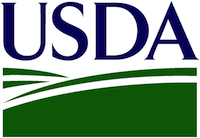 A new government report says that while the U.S. is a major exporter of biofuels, it still imports biofuels in order to meet government mandates. The study from the U.S. Department of Agriculture’s Economic Research Service says some other countries are major exporters and domestic users, thanks to laws there that allow greater blending amounts.
A new government report says that while the U.S. is a major exporter of biofuels, it still imports biofuels in order to meet government mandates. The study from the U.S. Department of Agriculture’s Economic Research Service says some other countries are major exporters and domestic users, thanks to laws there that allow greater blending amounts.
The ethanol blend wall in the United States, and an increase in demand for biofuels from other countries, helped the United States emerge as a net exporter of ethanol for the first time in 2010, with net exports positive each year since. Indeed, the United States has become the world’s largest exporter of ethanol. U.S. ethanol production and exports both remained strong in the face of falling gasoline prices in 2014 due to interactions of supply- and demand-side factors; production capacity beyond domestic policy requirements and strong export markets helped make high exports possible. In addition, U.S. imports of ethanol in 2014 fell to their lowest amounts in years.
Along with market forces, policies can affect future U.S. biofuel trade. If the blending rate in Brazil continues to increase (as it has recently), less Brazilian ethanol will be available to compete with the United States on the global market. At the same time, Brazil could continue to import U.S. ethanol to help meet its mandate. In addition, U.S. biofuel policies could affect the future of U.S. biofuel trade. For example, reducing the amount of ethanol that can be derived from corn in the U.S. renewal fuel mandate could potentially lead to reduction in U.S. ethanol production infrastructure in the long run, which could limit the availability of ethanol for exports.
The study also indicates some grave implications for the U.S.’ biofuel producers if the federal government continues to ignore the requirements under the law that created the Renewable Fuel Standard.
If the scheduled future increases in the U.S. mandate for advanced biofuel are not met by increased domestic production of advanced biofuels (and are not waived), the increase in the mandate amounts will need to be met with imports, such as sugarcane-based ethanol from Brazil.

